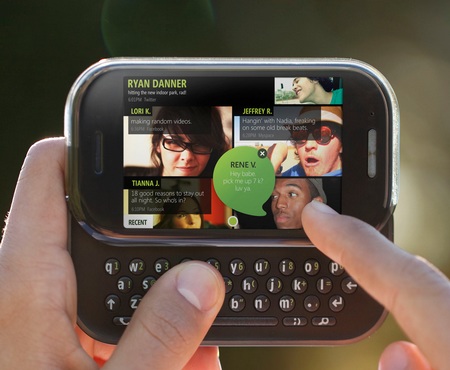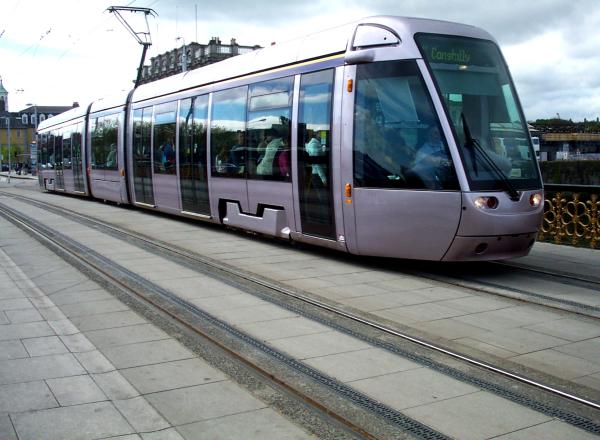| < | Wavepacket Blog |
> |
| << Newer entries << | |
| 2010 | |
| July | |
| Sun Jul 25 22:24:41 2010 Little Green Men |
|
| Sun Jul 11 22:38:59 2010 The End of Microsoft |
|
| Tue Jul 6 20:31:50 2010 Nimble Cities |
|
| >> Older entries >> | |
| >> links >> | |
| Sun Jul 25 22:24:41 2010 Little Green Men SETI's poor strategy may save humankind... |
|||||
| Lately,
Stephen Hawking made news with his comments that attempting to find or contact advanced
civilizations are dangerous because we might tempt
"nomads, looking to conquer and colonize". That is, we might attract predators (maybe even like
these).
Proponents of SETI aren't worried, and continue to look for radio signals from extraterrestrials. Even our own local billionaire, Paul Allen, has jumped on to the SETI bandwagon with his own set of radio telescopes. Some of the arguments against Hawking are valid. This article has some great points, for instance. Even a predatory advanced civilization could get whatever materials it needed without bothering with Earth. However, I think Hawking is worth listening to. There is a chance we could meet someone friendly, but every known example of advanced contact has turned out very, very badly for the contacted civilizations. To quote Wikipedia:
So on balance, why take the risk of attracting the attention of a dangerous advanced civilization? However, there is another reason I think SETI is a waste of money and resources. As it turns out, an advanced civilization wouldn't send us electromagnetic signals anyway. Looking for radio signals is almost certainly a waste of time. In 2004, two researchers submitted a letter to Nature. In it, they calculated the energy it would take to continuously broadcast radio (or other) signals throughout the galaxy, or even neighborhoods of the galaxy, vs. just sending physical objects to candidate systems. As they note in their abstract:
Their calculations were pretty back-of-the-envelope, and pretty compelling. Sending physical objects would be millions of times more efficent than beaming radio waves. Any advanced civilization would be foolish to broadcast messages. I remember when the Letter to Nature came out. Commentary noted something to the effect that we'd be better off sending probes to the Lagrange points of our gas giants than listening for radio signals. It's kind of a trippy idea: there may be ancient alien probes dormant in our solar system, waiting for us to find them! However, even though the math is simple and the conclusion obvious (no one would try to contact us by radio waves) SETI is still looking for radio signals. Given that Stephen Hawking thinks advanced civilizations may be dangerous, perhaps it is a good thing that SETI is barking up the wrong tree! Comments |
Related: science Unrelated: books economics energy environment geopolitics lists mathematics predictions |
||||
| Sun Jul 11 22:38:59 2010 The End of Microsoft Taken down by the little guys... |
|||||
| You've probably already heard about the
Microsoft Kin fiasco, whereby
Microsoft spent several years and around 1 billion dollars (a
billion dollars!) to produce the Kin phones, which were then discontinued
after just 6 weeks. They weren't selling.
Just recently local papers noted that Microsoft was firing people, although it isn't clear if these were related to the Kin disaster. Microsoft has been steady sliding in the mobile market. Market shares as of July 2010:
But this is just mobile phones. Why do I think this means the End of Microsoft? Because the future of computing is mobile devices. We've already seen the death of the desktop, killed by both browsers and laptops. Soon the laptop will be killed by mobile devices. Mobile devices are already doing most of what laptops can do, and in a few years laptops will really look like dinosaurs. Microsoft understands that mobile devices are the future. They take the same development platform philosophy as Apple, that is, try to produce a compelling customer experience while making it very difficult for application developers to build for multiple platforms. They want to keep a steady revenue stream for their mobile operating system, regardless of which phone is selling. But they can't seem to make any headway with Windows Mobile! Laptops and desktops are going away, and with them, Microsoft's main cash cow, the Windows operating system. Since office applications are also moving to the cloud, Microsoft has no cash cows left. The future of computing, only a few years away, is mobile devices, and Microsoft is steadily losing market share in the only strategic market. I'm not excited to see a large local company--and former employer of mine!--about to go off the precipice. Hopefully they will learn from their mistakes here, and get a compelling mobile operating system out before it is too late. Comments |
Related: economics predictions Unrelated: books energy environment geopolitics lists mathematics science |
||||
| Tue Jul 6 20:31:50 2010 Nimble Cities Vote for my submission in Slate's contest! |
|||||
I happened to be reading
Slate (have you noticed I read that website a lot?) and saw that they were still
accepting submissions for their
Nimble Cities contest. The question, as they put it:
And then, according to their Hive series, they'd allow people to vote and let the people decide on the winner. On the whole, I'm not impressed with their system or the question. They seemed to want a lot of crazy ideas, such as pneumatic tube networks and zeppelins (those are the examples they started with). They wanted to believe one magic transport solution would work, and I'm not so sure. But no mind! The clock was ticking, and I had only 30 minutes over lunch to submit my entry. Here it is: Compact and Decentralized The main goal is to reduce congestion and pollution. In practice that means having people drive less, by rearranging how communities are laid out, and providing practical transport alternatives. A good benchmark: no one should have to drive to work. The long term goal should be to make cities compact again. This will reduce gas consumption, even if everyone continues to use cars, and will make public transport more practical. The best layout is hierarchical: densely populated central hubs connected to each other by high-speed public transport (trains most likely), with each hub supporting a radial public transport network (buses and subways, and dedicated arterials for walkers and cyclists). Incentives to communities:
That's it. Wicked, right? You can also see it at Slate here. However, it turns out I misread the notice. They were still accepting submissions, but voting was about to end. So my submission was only live for an hour or so before they turned off voting. Even so, I managed to get a vote! Woo-hoo! Coming back to why I'm unimpressed with the Hive series, check out the winner of the contest. His solution?
Yes, the solution for our cities is to keep everyone driving, and give them smaller cars. At first I thought this was an awesome joke entry! But now I see it is serious. Oh well. One theme kept coming up in multiple entries (including mine): have dedicated roads for cyclists and pedestrians! Not lanes, but entire roads. You can't vote for my entry on Slate, but you can vote for it here! Comments |
Related: economics Unrelated: books energy environment geopolitics lists mathematics predictions science |
||||
| Links: |  |
Blog Directory | Blog Blog | Technorati Profile | Strange Attractor |



